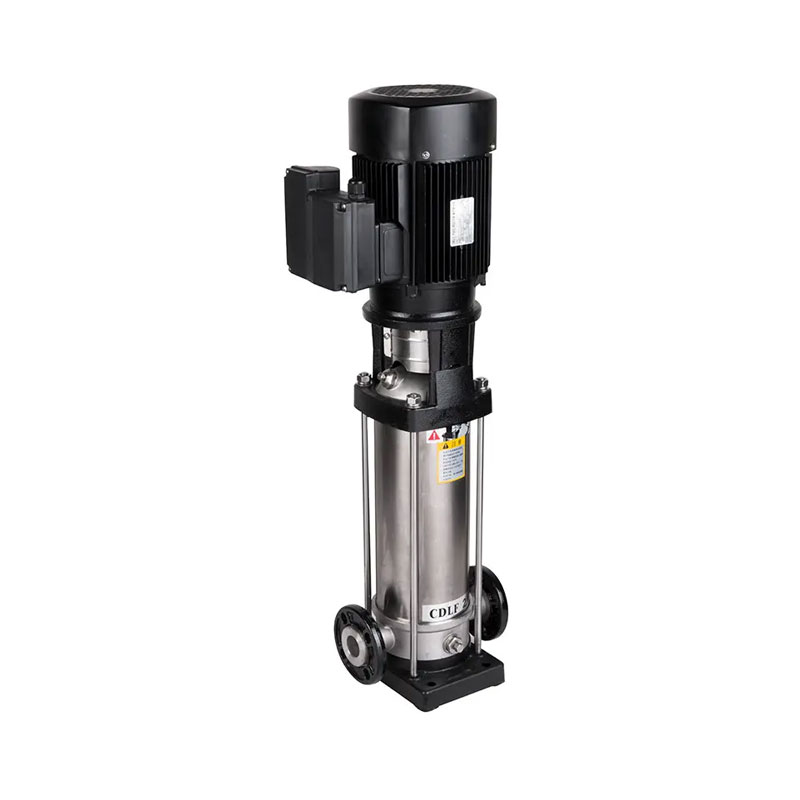What is a Centrifugal Pump and Why is It Widely Used?
2025-07-08
In industrial, commercial, and residential applications, centrifugal pumps are among the most commonly used types of pumps for moving fluids. Known for their simple design, high efficiency, and versatility, centrifugal pumps play a crucial role in a wide range of industries, from water supply and HVAC systems to oil & gas and chemical processing.
What is a Centrifugal Pump?
A centrifugal pump is a mechanical device that uses rotational energy, typically provided by an electric motor or engine, to move fluids through a piping system. The pump works by transferring energy from a spinning impellerto the fluid, increasing the fluid's velocity and pressure to push it through the system.
Centrifugal pumps are primarily used for transporting liquids such as water, chemicals, petroleum, and slurries.

How Does a Centrifugal Pump Work?
The working principle of a centrifugal pump is based on centrifugal force:
1. Fluid enters the pump through the suction inlet.
2. The impellerspins, imparting kinetic energy to the fluid.
3. The fluid moves outward from the center of the impeller into the volute casing, where the high velocity is converted into pressure.
4. The pressurized fluid exits through the discharge outlet.
This continuous process allows for a steady flow of liquid.
What Are the Types of Centrifugal Pumps?
There are several types of centrifugal pumps designed for different applications:
Single-Stage Centrifugal Pump:
Ideal for simple applications requiring moderate head (pressure).
Multi-Stage Centrifugal Pump:
Uses multiple impellers for higher pressure applications such as boiler feed or high-rise buildings.
End Suction Centrifugal Pump:
Common in water supply, HVAC, and irrigation systems.
Self-Priming Centrifugal Pump:
Designed to handle air and re-prime automatically without manual intervention.
Horizontal Split Case Pump:
Suitable for high flow applications with easy maintenance access.
Where Are Centrifugal Pumps Used?
Centrifugal pumps are extremely versatile and used across various industries, including:
Water Supply and Distribution:Municipal water systems, irrigation, and firefighting.
HVAC Systems:Circulating chilled or hot water in heating and cooling systems.
Oil & Gas:Transferring petroleum products and chemicals.
Chemical Industry:Handling corrosive or hazardous fluids.
Food & Beverage:Pumping dairy, juices, and other liquids in processing plants.
Mining and Power Plants:For slurry handling, dewatering, and cooling systems.
What Are the Advantages of Centrifugal Pumps?
Simple Design:Fewer moving parts mean lower maintenance and easy repairs.
High Efficiency:Ideal for continuous, high-volume pumping.
Cost-Effective:Affordable to purchase, operate, and maintain.
Wide Range of Applications:Suitable for both low and high flow rates.
Compact Size:Space-saving and adaptable to different installations.
What Should You Consider When Choosing a Centrifugal Pump?
To select the right centrifugal pump, consider:
Flow Rate and Pressure Requirements:Ensure the pump meets the system’s capacity needs.
Fluid Characteristics:Viscosity, temperature, chemical composition, and presence of solids.
Material of Construction:Choose materials resistant to corrosion, abrasion, or high temperatures.
Power Source:Electric motor, diesel engine, or hydraulic drive based on the application.
Installation Space:Horizontal or vertical configuration depending on site constraints.
Conclusion: Why Are Centrifugal Pumps Essential?
Centrifugal pumps are indispensable in fluid transfer operations across many industries due to their efficiency, simplicity, and reliability. Whether it's supplying clean water, handling chemicals, or circulating fluids in complex industrial systems, centrifugal pumps provide a practical and cost-effective solution.
Choosing the right centrifugal pump ensures optimal performance, reduced downtime, and long-term savingsfor your business or facility.


